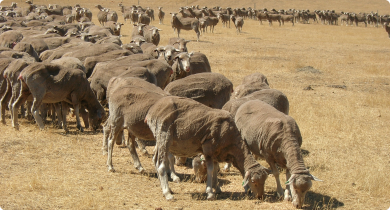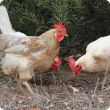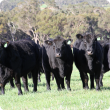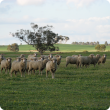Livestock health & diseases
Western Australia’s freedom from many pests and diseases allows our livestock producers access to a wide range of international and domestic markets. To maintain this enviable biosecurity status, the Department of Primary Industries and Regional Development ensures significant livestock disease is investigated. This information helps to assure trading partners that we are free of diseases.
Some diseases can have devastating effects on the livelihoods of everyone in the supply chain. To ensure the impacts on the economy and community are minimised, the department maintains trained, response-ready staff and systems to ensure an emergency animal disease incident is promptly and efficiently controlled. In addition, the risk of introduction of exotic disease is also managed by ensuring stockfeed contains appropriate ingredients.
Filter by search
Filter by topic
- Biosecurity & quarantine (109) Apply Biosecurity & quarantine filter
- Biosecurity (109) Apply Biosecurity filter
- (-) Remove Livestock biosecurity filter Livestock biosecurity
- Livestock disease surveillance (101) Apply Livestock disease surveillance filter
- Livestock & animals (89) Apply Livestock & animals filter
- Livestock species (72) Apply Livestock species filter
- Livestock management (33) Apply Livestock management filter
- Sheep (31) Apply Sheep filter
- Emergency animal disease preparedness (31) Apply Emergency animal disease preparedness filter
- Beef cattle (23) Apply Beef cattle filter
- Dairy cattle (19) Apply Dairy cattle filter
- Management & reproduction (13) Apply Management & reproduction filter
- Poultry & birds (12) Apply Poultry & birds filter
- Pigs (11) Apply Pigs filter
- Goats (9) Apply Goats filter
- Livestock movement & identification (7) Apply Livestock movement & identification filter
- Horses (7) Apply Horses filter
- Chemicals (7) Apply Chemicals filter
- Feeding & nutrition (7) Apply Feeding & nutrition filter
- Control methods (7) Apply Control methods filter
- Wildlife biosecurity (5) Apply Wildlife biosecurity filter
- Emergency response (5) Apply Emergency response filter
- Veterinary chemicals (5) Apply Veterinary chemicals filter
- Quarantine (3) Apply Quarantine filter
- Stockfeed (3) Apply Stockfeed filter
- Preventing residues (3) Apply Preventing residues filter
- Residues in livestock (3) Apply Residues in livestock filter
- Food, export & investment (3) Apply Food, export & investment filter
- Importing to Western Australia (3) Apply Importing to Western Australia filter
- Importing animals (3) Apply Importing animals filter
- Pests (1) Apply Pests filter
- Plant biosecurity (1) Apply Plant biosecurity filter
- Water management (1) Apply Water management filter
- Pest animals (1) Apply Pest animals filter
- Water (1) Apply Water filter
- Biosecurity governance (1) Apply Biosecurity governance filter
- Biosecurity and Agriculture Management Act (1) Apply Biosecurity and Agriculture Management Act filter
- Climate, land & water (1) Apply Climate, land & water filter
- Export services (1) Apply Export services filter
- Livestock research & development (1) Apply Livestock research & development filter
- Mechanical, physical and cultural (1) Apply Mechanical, physical and cultural filter









